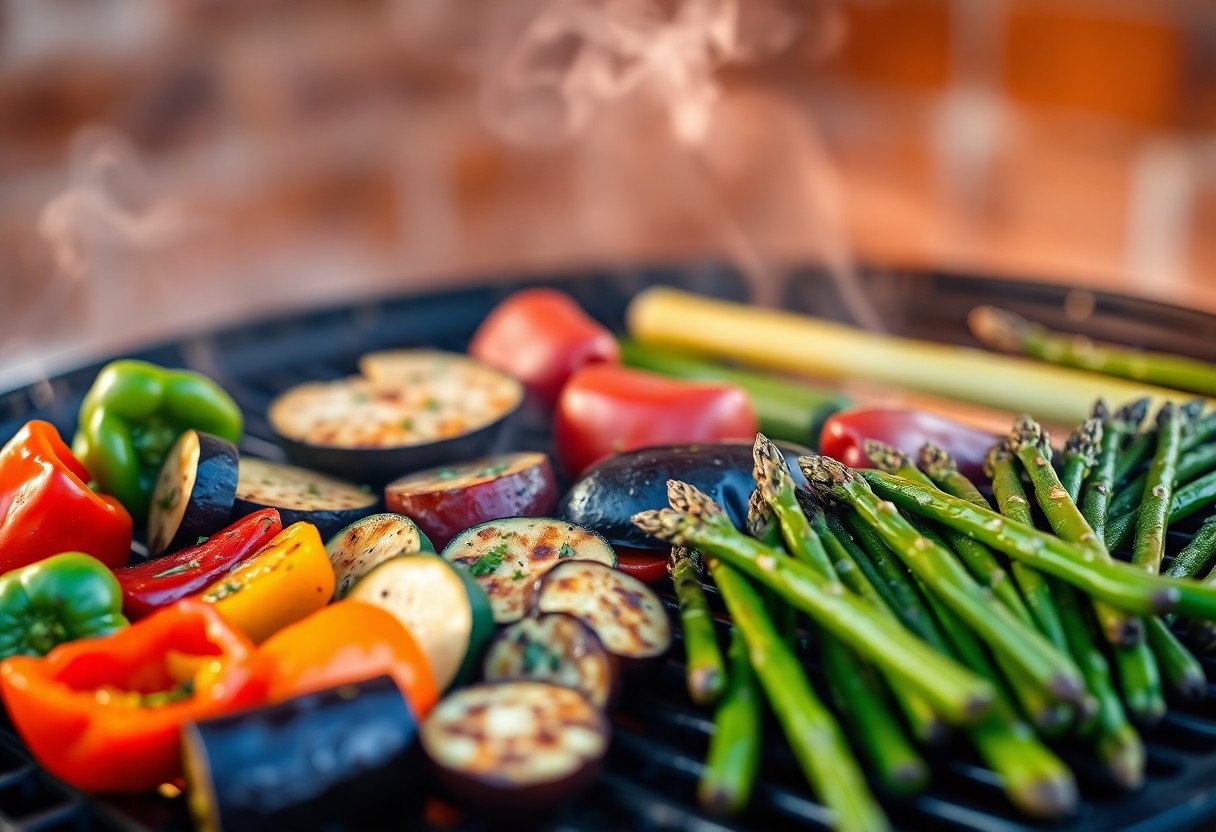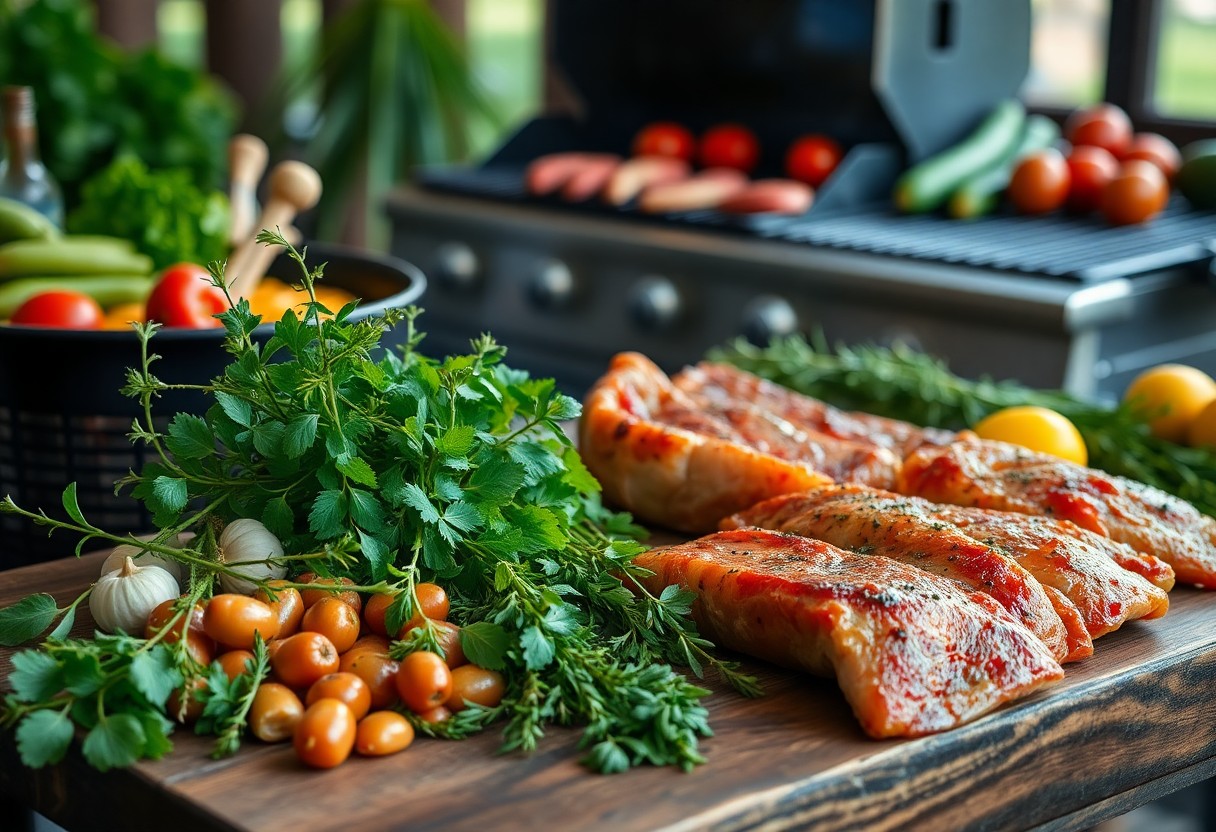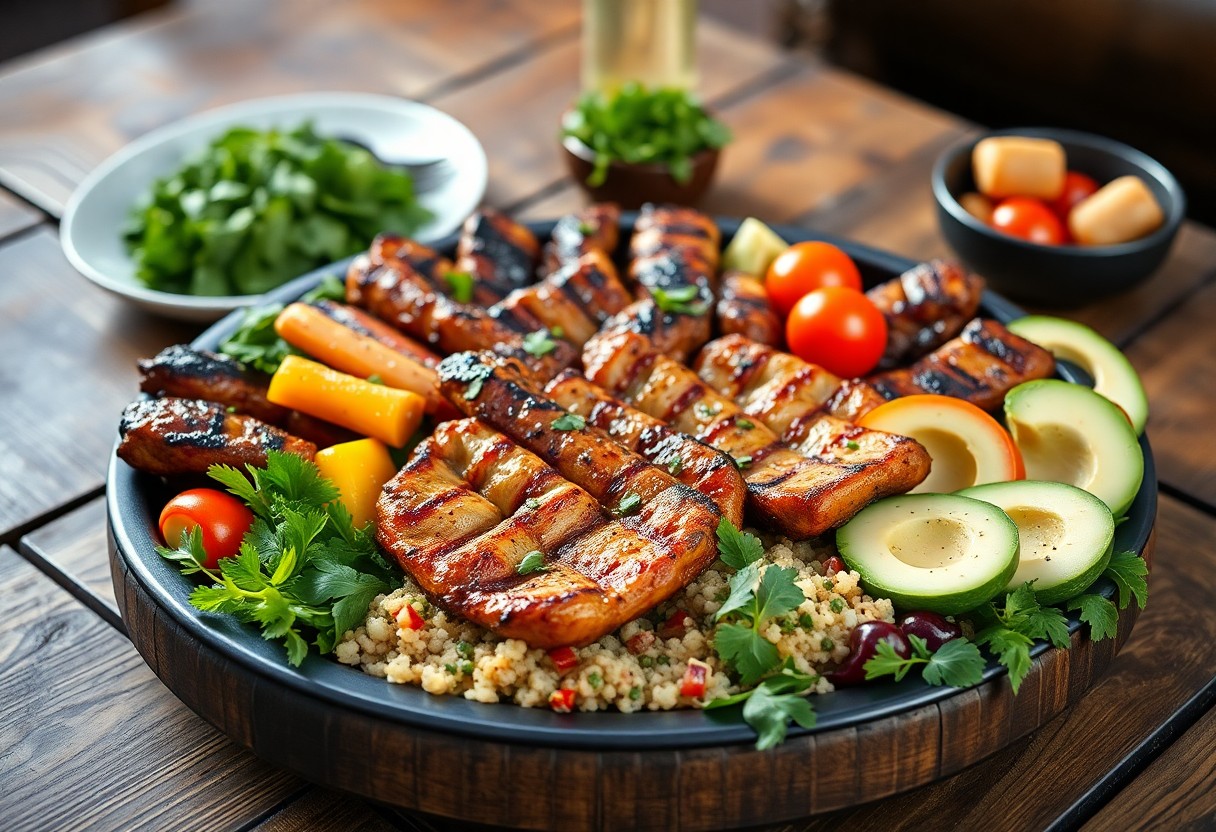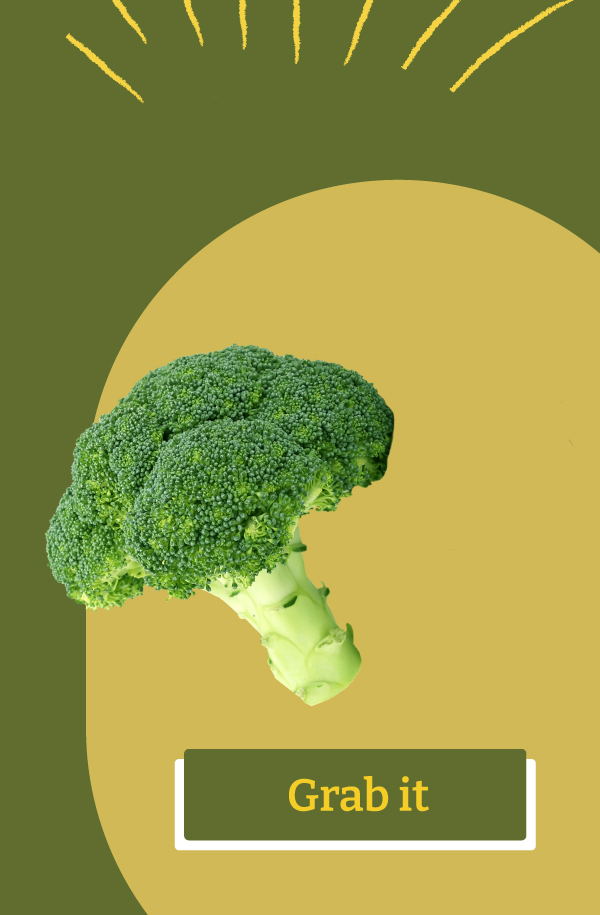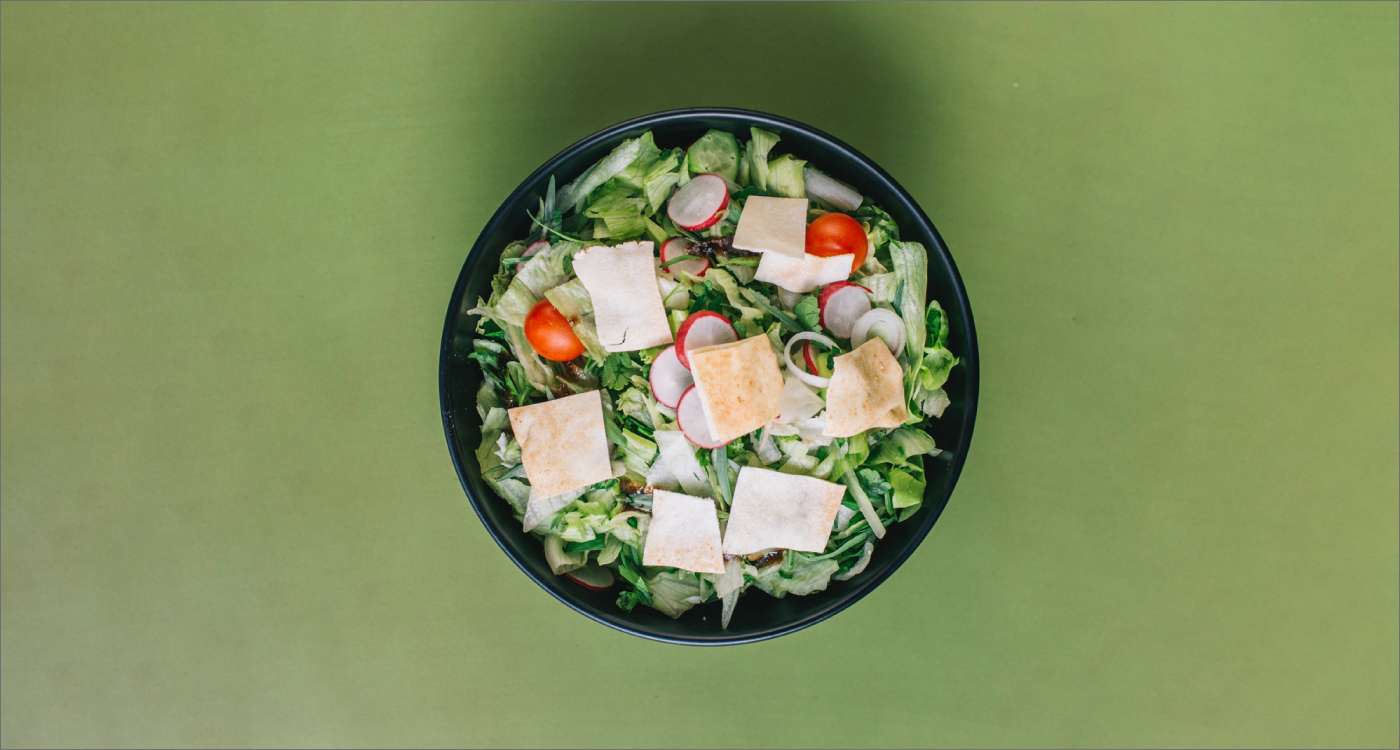Vegetables can be transformed into mouthwatering dishes when grilled correctly. I want to share with you the crucial techniques that will elevate your grilling game. Whether you prefer tender zucchini, smoky bell peppers, or caramelized asparagus, I believe that mastering marinating and cooking temperatures is key to achieving that perfect char. With a few expert tips, you can savor the full flavor of your produce while ensuring they retain their vibrant textures and nutrients. Let’s explore how to make your grilled vegetables deliciously irresistible.
Key Takeaways:
- Select a variety of vegetables for diverse textures and flavors, such as bell peppers, zucchini, and asparagus.
- Marinate vegetables in olive oil, herbs, and spices to enhance their natural flavors before grilling.
- Preheat the grill to ensure even cooking and achieve those desirable grill marks.
- Use skewers or grill baskets for smaller or cut vegetables to prevent them from falling through the grates.
- Monitor cooking times closely, as different vegetables have varying cooking durations to avoid overcooking.
Selecting the Right Vegetables
For the best grilled vegetables, it’s important to select the appropriate varieties. Aim for fresh, ripe options that will not only enhance flavor but also texture when grilled. Pay attention to the size, shape, and color of the vegetables, as these factors can contribute to your grilling experience. Consider choosing organic options whenever possible, as they often have superior taste and are pesticide-free.
Seasonal Vegetable Choices
Any experienced griller knows that seasonal vegetables often yield the best flavor and quality. By choosing what’s in season, you’ll find vegetables that are fresher, more nutrient-rich, and more flavorful. Depending on the time of year, options may include:
| Spring | Asparagus, Peas, Radishes |
| Summer | Zucchini, Bell Peppers, Corn |
| Fall | Brussels Sprouts, Squash, Carrots |
| Winter | Beets, Cabbage, Root Vegetables |
| Year-Round | Onions, Mushrooms, Tomatoes |
Types of Vegetables Suitable for Grilling
Seasonal vegetables are not the only options; various types work well on the grill. I favor vegetables that can retain their texture and flavor when exposed to high heat. Here are some excellent choices for grilling:
| Firmer Vegetables | Eggplant, Bell Peppers, Onions |
| Fruits | Tomatoes, Pineapples, Peaches |
| Small Bites | Radishes, Whole Mushrooms, Cherry Tomatoes |
| Leafy Greens | Grill them in baskets for added flavor. |
| Skewered Options | Combine multiple types for variety. |
Consequently, knowing which vegetables can withstand the grill’s heat can make a significant difference in flavor and texture. I suggest considering vegetables that are hearty and can caramelize nicely, such as:
- Eggplant
- Zucchini
- Bell Peppers
- Mushrooms
- Onions
Any time you grill, selecting the right ones can elevate your dishes to a whole new level.
Prepping Your Vegetables
One of the first steps to achieving delectable grilled vegetables is proper preparation. Make sure to select fresh, ripe produce as the quality of your vegetables significantly influences the overall flavor. Rinse them thoroughly under cold water to eliminate any dirt or pesticides. Next, I recommend cutting them into uniform sizes to ensure even cooking, which will help you achieve that perfect grilled texture and taste.
Washing and Cutting Techniques
Between varieties of vegetables, I find that the washing process should be consistent. Use a vegetable brush for firmer vegetables like potatoes or cucumbers, while delicate items like mushrooms can simply be wiped with a damp cloth. As for cutting, I typically aim for pieces about ½ inch thick. This size yields great grill marks and helps retain moisture.
Marinating Options for Enhanced Flavor
Options for enhancing the flavors of your grilled vegetables include a diverse array of marinades. You can choose basic olive oil, vinegar, and herb combinations, or venture into bold flavors with soy sauce, citrus, and garlic. The key here is to allow your vegetables to soak up those savory elements for at least 30 minutes; this infuses them with flavor and improves their grilling outcome.
Another effective method I employ is using a blend of herbs and spices mixed with olive oil or a splash of citrus juice. Marinades with acidic components, like lemon juice or vinegar, not only enhance the taste but also help to tenderize tougher vegetables, making them delightful to bite into. Feel free to experiment with combinations like balsamic vinegar with rosemary or garlic-infused oil with thyme for a twist. Be cautious not to marinate for too long, especially with acid-heavy options, as they can overwhelm the vegetables. Ultimately, the right marinade can elevate your grilled vegetables to an unforgettable culinary experience.
Choosing the Right Grill
Unlike other cooking methods, grilling offers a unique flavor that enhances the natural sweetness of vegetables. Selecting the appropriate grill is necessary for achieving that perfect char and smoky aroma. Whether you prefer the simplicity of a gas grill or the traditional appeal of charcoal, understanding your options and their impact on flavor and cooking times can elevate your grilled vegetable experience.
Charcoal vs. Gas Grills
Across the grilling community, the debate between charcoal and gas is never-ending. Charcoal grills provide that classic smoky flavor and higher heat, perfect for searing vegetables. In contrast, gas grills offer convenience and precise temperature control, allowing for more consistent cooking results. Ultimately, your choice depends on your needs, but both can produce delicious grilled veggies when used correctly.
Grilling Accessories and Tools
Below is a list of necessary grilling accessories and tools that can enhance your grilling experience. A good pair of long-handled tongs is necessary for safely flipping your vegetables on the grill without getting burned. I also recommend a sturdy grill basket to hold smaller pieces, ensuring nothing falls through the grates. A reliable meat thermometer can be helpful even for veggies as it helps in determining the right doneness. Don’t forget about grilling mats or sheets, which can protect delicate veggies while still allowing that delightful grill flavor to infuse.
The right accessories make a significant difference in grilling success. Invest in a quality set of heat-resistant gloves to protect your hands during grilling; this prevents burns and ensures safe handling. A grill brush is ideal for maintaining your grill’s longevity and hygiene, clearing away residues that could affect flavor. You may also want to use skewers for easy flipping and presentation, making it easier to manage smaller vegetables. By equipping yourself with the best tools, you ensure that every grilling session is safe, enjoyable, and leads to delectable results.
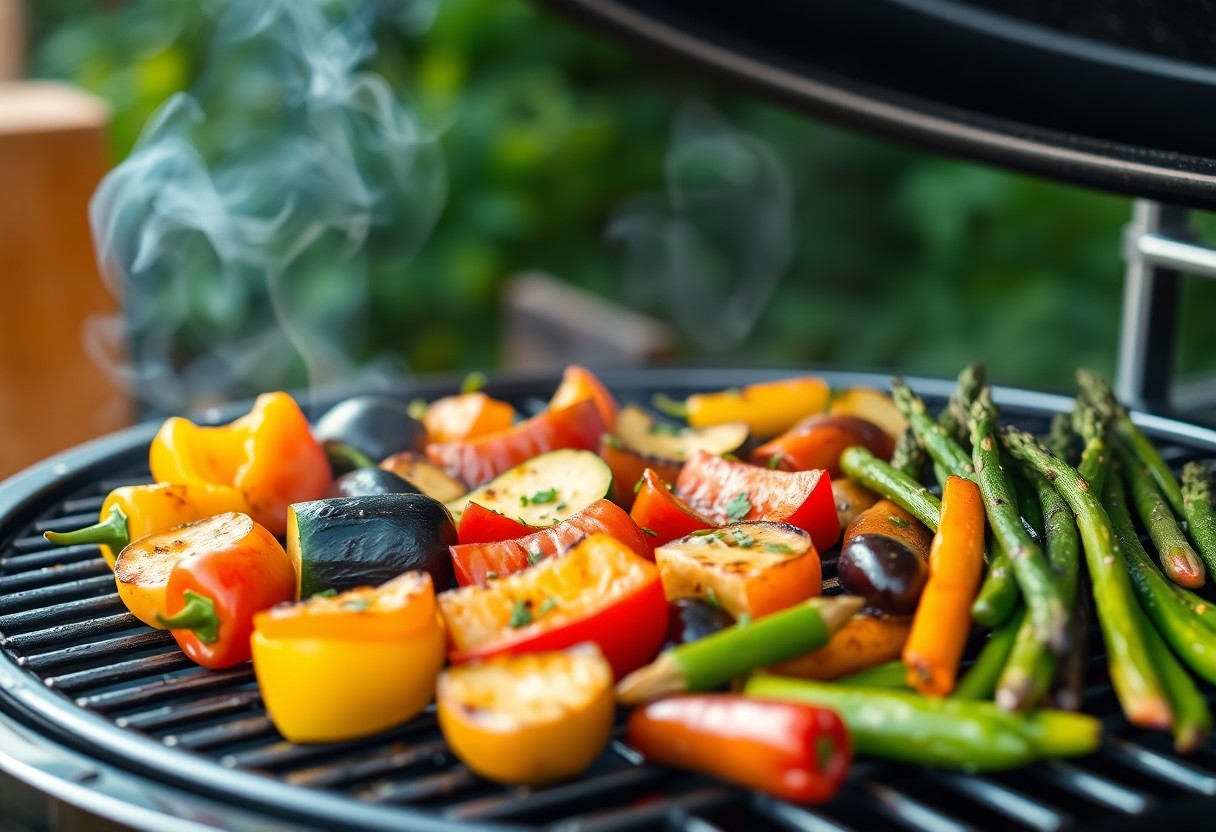
Mastering the Grilling Technique
Now that you’re eager to develop your grilling skills, mastering the technique is important for achieving perfectly grilled vegetables. The art of grilling involves understanding heat and timing while applying the right techniques to ensure a delightful, smoky flavor and tender texture. Each vegetable has its own unique characteristics and requires a tailored approach for a satisfying outcome.
Temperature Control and Timing
At the heart of successful grilling is the management of temperature and timing. Use the following guide for optimal results:
| Vegetable | Recommended Temperature (°F) |
| Zucchini | 350 – 400 |
| Bell Peppers | 400 – 450 |
| Mushrooms | 375 – 425 |
| Asparagus | 400 – 450 |
Techniques for Even Cooking
Around your grill, consistent heat distribution is key to ensuring all vegetables cook evenly. I like to use a combination of direct and indirect heat for optimal results. For larger or denser vegetables, I often place them near the cooler side of the grill first, allowing them to cook through without burning. Meanwhile, smaller or more tender vegetables can be situated over direct heat, as they require less time and attention.
It’s important to also cut your vegetables into even sizes to promote uniform cooking. Placing them on skewers, or using grill baskets can help keep smaller pieces from falling through the grates while allowing for even exposure to flames. Additionally, turning them regularly helps achieve that coveted grilled mark without burning any side. Always make it a point to monitor them closely to avoid unexpected charred tastes—nobody wants to ruin a good batch of grilled veggies!
Flavor Enhancements
Many factors can elevate the taste of grilled vegetables, making them truly unforgettable. Unlocking a world of flavor begins with the right seasonings and sauces, allowing you to tailor your grilled creations to complement various dishes and personal preferences. From marinades to finishing touches, each element contributes to creating that perfect bite. Experimenting with diverse flavors can truly enhance your grilling experience.
Seasoning and Spice Blends
At the heart of flavor enhancement lies the use of seasonings and spice blends. I recommend experimenting with a variety of herbs and spices, such as smoked paprika, garlic powder, or Italian seasoning, to create a mix that highlights your vegetables’ natural tastes. A simple olive oil and salt combination can go a long way, but combining multiple spices can take your grilled veggies to the next level.
Adding Sauces and Finishes
Blends of sauces and finishes can transform your grilled vegetables into a dish bursting with flavor. A dash of balsamic glaze or a drizzle of tahini sauce adds a delightful richness that can enhance even the simplest grilled veggies. You may also want to consider adding fresh herbs or cheese right before serving to create that perfect finish.
But I have found that the secret to truly remarkable grilled vegetables is in the choice of sauce. Whether you opt for a tangy vinaigrette, a spicy salsa, or a creamy dip, always apply these finishes at the right moment to preserve their flavor and texture. Adding sauces before grilling can make them soggy, while finishing touches after grilling gives that satisfying burst of flavor. Experimenting with different combinations will not only surprise your palate but also impress your guests.
Pairing Grilled Vegetables
All grilled vegetables have their unique flavors and textures, making them incredibly versatile. To elevate your dining experience, consider the right pairings that enhance the natural goodness of your grilled veggies. Whether it’s a flavorful dip, a hearty grain, or a refreshing salad, matching these elements can create a harmonious plate, inviting delightful taste combinations that will surely impress.
Complementary Side Dishes
Beside the grilled vegetables, I often opt for complementary side dishes that balance and contrast flavors. For instance, a light quinoa salad or creamy hummus can add depth to your meal, while fresh herbs and citrus-infused grains bring bright notes that harmonize beautifully with the smoky undertones of the grilled veggies. The key is to choose sides that enhance rather than overpower.
Wine and Beverage Pairings
Any time I serve grilled vegetables, I consider wine and beverage pairings to amplify the meal. The right drink not only complements the flavors but also adds another layer of enjoyment. I find that a crisp white wine like Sauvignon Blanc pairs excellently with grilled asparagus or zucchini, while a full-bodied red like Merlot works wonders with smoky eggplant or bell peppers.
Indeed, selecting the perfect wine or beverage is an art that can elevate your grilled vegetable experience. For vibrant, charred flavors, I recommend a fresh rosé or a sparkling water with a hint of citrus to cleanse the palate. If you lean towards a heartier dish, a full-bodied red wine can bring out the richness of your grilled vegetables. Pay attention to the notes in the drink and how they interact with the smoke and seasoning of your vegetables, as this can truly take your meal to new heights.
Summing up
Considering all points, I’ve found that mastering techniques for crafting delectable grilled vegetables can significantly elevate your culinary skills. By selecting the right vegetables, seasoning them thoughtfully, and using proper grilling methods, you can achieve delightful flavors and textures. I encourage you to experiment with various marinades, grilling temperatures, and cooking times to discover combinations that suit your palate. Ultimately, these simple techniques can transform ordinary vegetables into a memorable grilled experience that enhances any meal. Your journey in grilling can be deliciously rewarding with practice and passion.
FAQ
Q: What vegetables are best for grilling?
A: A variety of vegetables are excellent candidates for grilling, including bell peppers, zucchini, eggplant, mushrooms, asparagus, and corn on the cob. These vegetables can hold their shape when cooked and develop a delicious char. Additionally, root vegetables like carrots and sweet potatoes can also be grilled, but should be pre-cooked slightly to ensure tenderness. Experiment with seasonal vegetables for the best flavor!
Q: How can I enhance the flavor of grilled vegetables?
A: Enhancing the flavor of grilled vegetables can be achieved through marinades, seasoning, and the choice of cooking oil. Marinating vegetables in a mixture of olive oil, herbs, and spices for at least 30 minutes before grilling can deepen the flavor. Consider using lemon juice, balsamic vinegar, or soy sauce for acidity and depth. Adding salt, pepper, garlic powder, or even a sprinkle of cheese after grilling can also elevate the taste.
Q: What grilling method works best for vegetables?
A: The best grilling method for vegetables often depends on their size and type. For smaller or cut vegetables, a grill basket or skewers can help keep them from falling through the grates. Larger or sturdier vegetables, such as bell peppers or zucchini slices, can be placed directly on the grill. Cooking over medium-high heat allows for a nice char without burning, and flipping the vegetables occasionally ensures even cooking.
Q: Should I soak vegetables before grilling them?
A: Soaking vegetables is generally not necessary, but it can be beneficial for certain types of skewered vegetables. If you’re using wooden skewers, soaking them in water for about 30 minutes before grilling can prevent them from burning. However, for most whole or thicker vegetables, a good coating of oil before grilling will suffice to prevent sticking and enhance flavor.
Q: How do I store leftover grilled vegetables?
A: Leftover grilled vegetables can be stored in an airtight container in the refrigerator for up to 4 days. Make sure they have cooled down completely before sealing the container. For longer storage, you can freeze grilled vegetables. Lay them flat on a baking sheet until frozen, then transfer them to freezer bags, ensuring as much air as possible is removed, which helps prevent freezer burn. Thaw and reheat them in a skillet or microwave for best results.
